第387章 FRANCIS ATTERBURY(3)
The answer to Bentley, which bears the name of Boyle, but which was, in truth, no more the work of Boyle than the letters to which the controversy related were the work of Phalaris, is now read only by the curious, and will in all probability never be reprinted again.But it had its day of noisy popularity.It was to be found, not only in the studies of men of letters, but on the tables of the most brilliant drawing-rooms of Soho Square and Covent Garden.Even the beaus and coquettes of that age, the Wildairs and the Lady Lurewells, the Mirabells and the Millaments, congratulated each other on the way in which the gay young gentleman, whose erudition sate so easily upon him, and who wrote with so much pleasantry and good breeding about the Attic dialect and the anapaestic measure, Sicilian talents and Thericlean cups, had bantered the queer prig of a doctor.Nor was the applause of the multitude undeserved.The book is, indeed, Atterbury's masterpiece, and gives a higher notion of his powers than any of those works to which he put his name.That he was altogether in the wrong on the main question, and on all the collateral questions springing out of it, that his knowledge of the language, the literature, and the history of Greece was not equal to what many freshmen now bring up every year to Cambridge and Oxford, and that some of his blunders seem rather to deserve a flogging than a refutation, is true; and therefore it is that his performance is, in the highest degree, interesting and valuable to a judicious reader.It is good by reason of its exceeding badness.It is the most extraordinary instance that exists of the art of making much show with little substance.
There is no difficulty, says the steward of Moliere's miser, in giving a fine dinner with plenty of money: the really great cook is he who can set out a banquet with no money at all.That Bentley should have written excellently on ancient chronology and geography, on the development of the Greek language, and the origin of the Greek drama, is not strange.But that Atterbury should, during some years, have been thought to have treated these subjects much better than Bentley is strange indeed.It is true that the champion of Christchurch had all the help which the most celebrated members of that society could give him.
Smalridge contributed some very good wit; Friend and others some very bad archaeology and philology.But the greater part of the volume was entirely Atterbury's: what was not his own was revised and retouched by him: and the whole bears the mark of his mind, a mind inexhaustibly rich in all the resources of controversy, and familiar with all the artifices which make falsehood look like truth, and ignorance like knowledge.He had little gold; but he beat that little out to the very thinnest leaf, and spread it over so vast a surface that to those who judged by a glance, and who did not resort to balances and tests, the glittering heap of worthless matter which he produced seemed to be an inestimable treasure of massy bullion.Such arguments as he had he placed in the clearest light.Where he had no arguments, he resorted to personalities, sometimes serious, generally ludicrous, always clever and cutting.But, whether he was grave or merry, whether he reasoned or sneered, his style was always pure, polished, and easy.
Party spirit then ran high; yet, though Bentley ranked among Whigs, and Christchurch was a stronghold of Toryism, Whigs joined with Tories in applauding Atterbury's volume.Garth insulted Bentley, and extolled Boyle in lines which are now never quoted except to be laughed at.Swift, in his "Battle of the Books,"introduced with much pleasantry Boyle, clad in armour, the gift of all the gods, and directed by Apollo in the form of a human friend, for whose name a blank is left which may easily be filled up.The youth, so accoutred, and so assisted, gains an easy victory over his uncourteous and boastful antagonist.Bentley, meanwhile, was supported by the consciousness of an immeasurable superiority, and encouraged by the voices of the few who were really competent to judge the combat."No man," he said, justly and nobly, "was ever written down but by himself." He spent two years in preparing a reply, which will never cease to be read and prized while the literature of ancient Greece is studied in any part of the world.This reply proved, not only that the letters ascribed to Phalaris were spurious, but that Atterbury, with all his wit, his eloquence, his skill in controversial fence, was the most audacious pretender that ever wrote about what he did not understand.But to Atterbury this exposure was matter of indifference.He was now engaged in a dispute about matters far more important and exciting than the laws of Zaleucus and the laws of Charondas.The rage of religious factions was extreme.